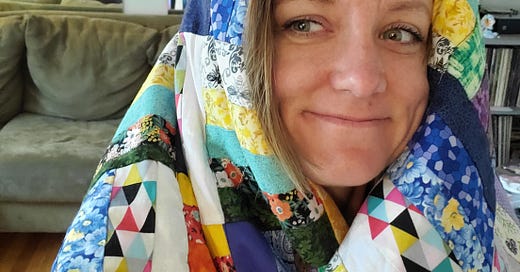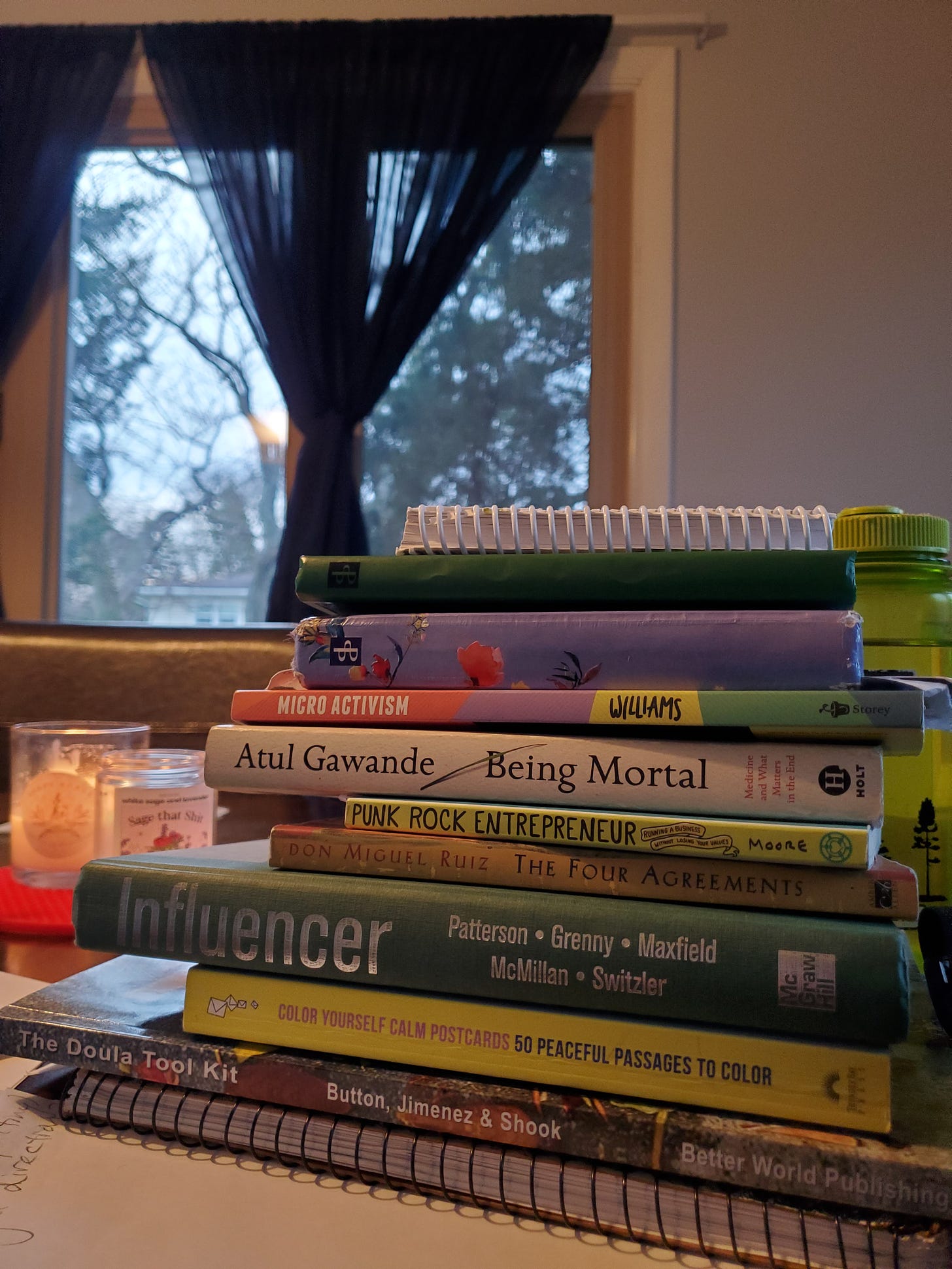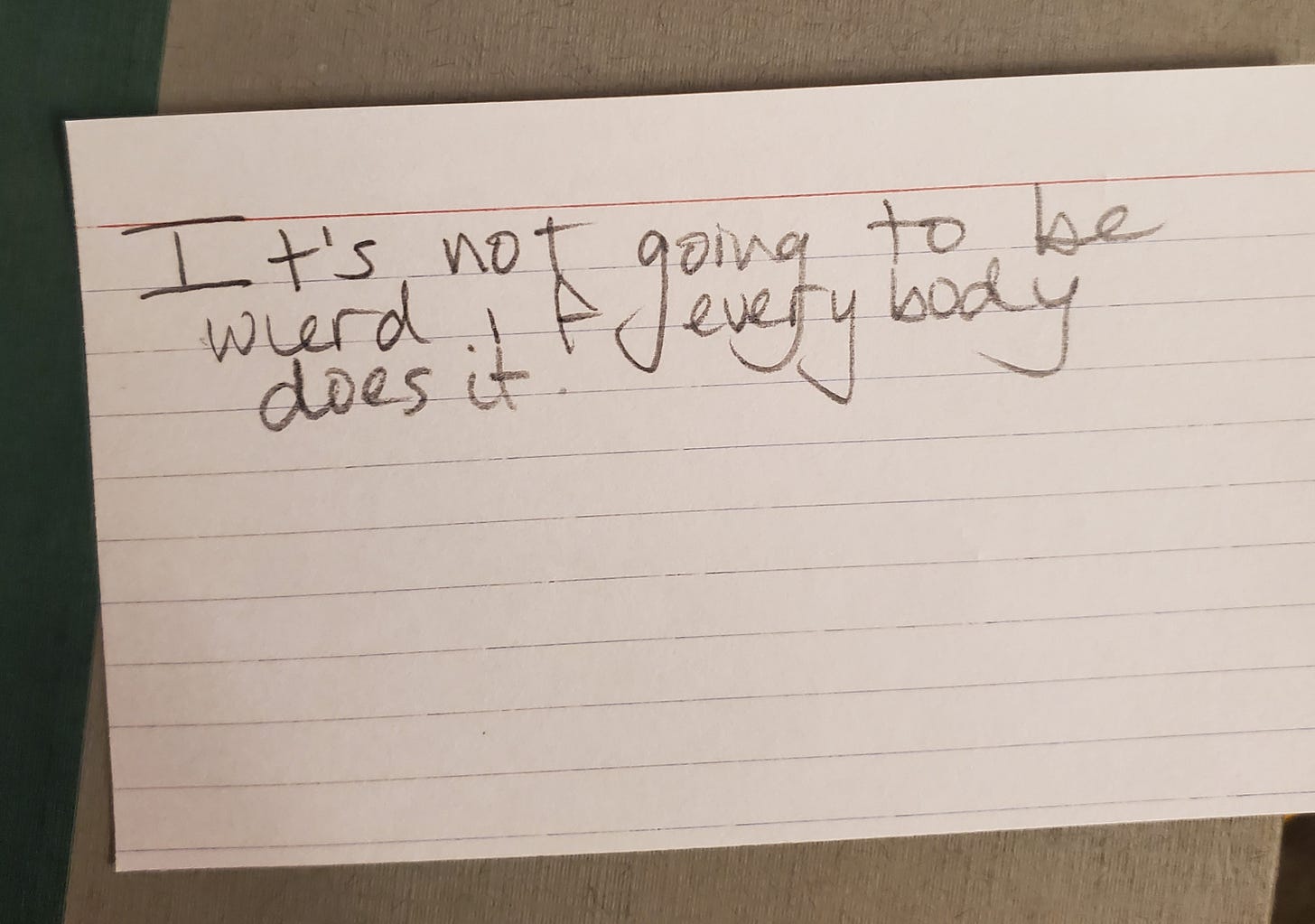Holy smokes, we did it! We lit a spark in the dark, and humans showed up with their purple crayons.
Earlier this week, I invited some colleagues and confidants to a discussion about care. We brought A Bedside Campfire to a coffee shop. The agenda was short:
Care in the community
Healthcare navigation
It was a melding of minds and experiences. Folks with decades of healthcare experience, and care novices, bringing ideas to the fire.
I brought my own old ideas written in notebooks, and the brilliant published works of real authors, such as:
Being Mortal: Medicine and What Matters In The End by Atul Gawande
Micro Activism: How You Can Make A Difference in the World (Without A Bullhorn) by Omkari L. Williams
Influencer: The Power to Change Anything by Patterson, Grenny, Maxfield, McMillan, and Switzler
The Four Agreements by Don Miguel Ruiz
Memory Jogger 2: Tools for Continuous Improvement and Effective Planning
The Doula Tool Kit: The Complete Practical Guide for End-of-Life Doulas & Caregivers by Diane Button, Gabrielle Elise Jimenez, and Angela Shook
Punk Rock Entrepreneur: Running a Business Without Losing Your Values by Caroline Moore
Some I’ve read in their entirety, and others are works-in-progress. And all of them contributed to this wide-open space of opportunity for a brighter future.
We took the following writing prompts as a post-campfire reflection:
What problem are we trying to solve?
How do we build/shift a culture towards what is needed?
What does solving this problem look like?
What is one (tiny) step in the right direction?
How can we engage our local government/resources to do something?
I’ve got my responses to 3 of those written. The others — a work-in-progress. And before I begin my day immersed in the brilliant minds of nursing research at work, I wanted to share a few with you:
What Problem Are We Trying to Solve?
Human assistance is needed in the community for tasks/services not covered by traditional health insurance, and which, on their own, become quite costly to outsource.
People in the community need help navigating a health problem, levels of care, services offered, and care planning — in a way that aligns with their personal goals and preferences.
Stated another way: People in the community with a new or chronic health condition (diagnosis) may have difficulty understanding and navigating their diagnosis/problem over time and across all levels of care. They do not know the short- and long-term options available, nor the costs, and rely on loved ones or healthcare workers to piece together a plan that aligns with their personal goals/preferences.
How Do We Build/Shift a Culture Towards What Is Needed?
Recognize that death is not the worst possible outcome and focus, rather, on the prevention, reduction, and/or alleviation of suffering.
Normalize/promote intergenerational living, both familial and communal, in the United States.
Encourage the youth and retirees to engage in acts of service within their community, including monitoring the wellbeing of the vulnerable and underserved.
In-source care and healthcare navigation by returning ownership of the journey (story) to the individual, with support from the collective.
What Does Solving This Problem Look Like?
A faith-based community, minus the religion
Congregate living across generations
People who understand and can speak fluently about their body, diagnosis/problem, treatments, and goals/preferences
A country with no medical debt or sacrifice of “ownership” or belongings in order to access care
Normalizing adaptive modifications
While I continue to reflect on the other prompts and potential action items, I invite you to do the same.
What’s something you’re passionate about? Have you considered breaking it down into manageable chunks? Would the input of others help you along the way?
Start.
Start now.
Light the spark.
And drink water, rest, and do whatever is needed to fill up your cup.
Take good care!
Love,
Jessie
PS, here’s a poem for you:
As dawn breaks on the coming season, obscured as it may be by storm clouds or tangled brambles, from the thick of it the human heart knows what the eyes cannot see and the mind may not perceive that a glimmer of hope shines brightly upon the prospect of a brand new day. you are a spark in and through the dark. shine on...




